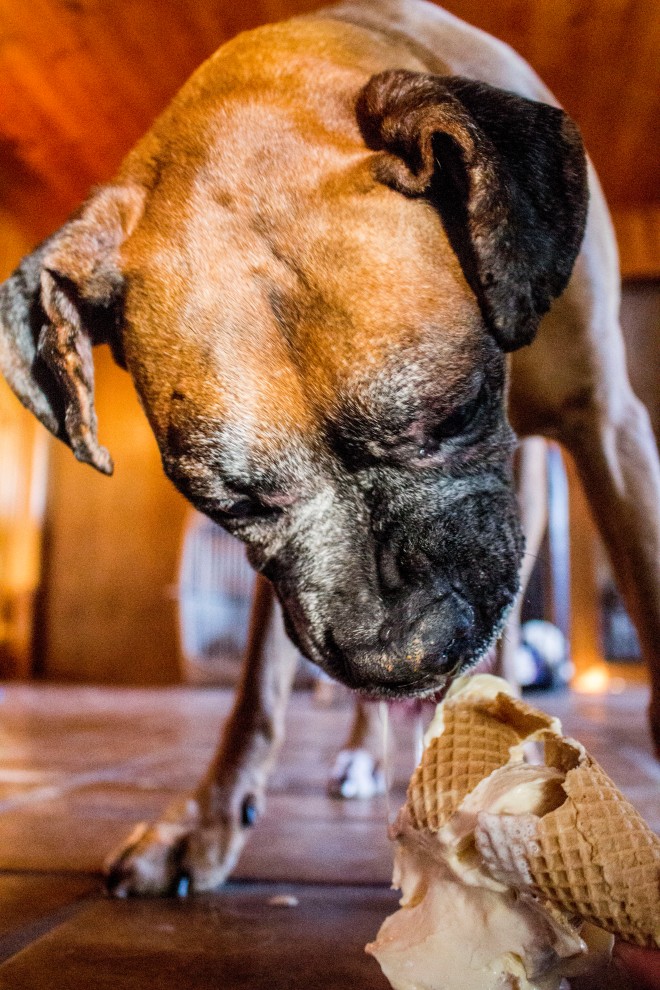Take-Home Message: Spread hope, not hate. Focusing on all the bad in the world can make you lose sight of the good in it.
Writer’s Note: This is based upon an actual conversation from Summer 2015. I have preserved the integrity of this to the best of my memory.
It was a normal day and I was headed to get a haircut. Since I was from out of town and driving around the city, I pulled up Yelp and searched for the nearest barber shop. The closest result showed up just a few blocks from where I was and it was on my way back home. So, I pulled in and walked up to the door.
Immediately after walking into the building, I began second-guessing my decision. In the barber’s chair sat a large Mexican man covered in tattoos, carrying on conversation loud enough for the whole building to participate. But there wasn’t anybody else but the hair dresser and me. Towering over this man was a large black woman working on a high and tight for the customer. She was humming a few bars of what she later told me was one of her favorite Billie Holiday tunes.
I thought I should leave. I pulled up Yelp again and refreshed my search for a haircut and found the nearest one almost 7 miles away. On a Friday afternoon around Atlanta, GA, 7 miles is a several-hour-long commitment, and for some reason I felt like I was being frozen in place. For some reason, I thought, I’m supposed to stay here.
So I gulped my preconceived prejudices down and waited. After a painful amount of time, the Mexican man stood up, politely thanked the woman, paid her, and headed for the door. A few paces before he exited, he flashed me a smile and asked, “How are you?” shattering my earlier notions that this was a dangerous man. “I’m fine, thanks,” I replied, disgraced by my stereotyping.
“You’re up next, Sweetie,” the warm, inviting voice of the hairdresser beckoned to me. “What can I do for you, today, young man?” she said politely awaiting my instructions. I told her how I liked it cut and she said, “Oh, that will look great on you.”
She asked me where I was from and how I made my way to her shop. She asked me what I did and how I had found my way from Oklahoma to Atlanta. I told her what I was doing in Georgia and how [at the time] I was about to go back to school. I was interested in studying law because I had a passion for helping people live more freely, I told her.
“I can already tell you’d be one of those good attorneys,” she said. “The world needs more of ‘em.” But she paused for a moment after that and seemed bothered. “I’ve had experiences with bad attorneys,” she said. “Someone I know (I think she said her nephew) got arrested for possession last year, and he’s been locked up ever since. They [the Public Defenders] didn’t really care about his case.”
“I’m so sorry to hear that,” I told her–and I really was. I could tell that this was really troubling her.
“What do you think about marijuana?” she asked. “Do you think it should be illegal?”
A rare moment with a stranger had arrived for me. Here I was, simply wanting a haircut, and my prejudices had almost driven me out of this shop. But her kindness and sincerity had sent my smugness packing. “I don’t have a problem with it,” I told her. “In fact, I think it being illegal does a lot more harm than good.”
“Why is it that so many people don’t think that?” she asked.
“I couldn’t tell you for certain, ma’am,” I said, “But I think the world could be a lot better place if the government and law enforcement stopped interfering so much with people’s lives.”
At this she stopped cutting my hair altogether and I saw a tear stream down from one of her eyes. She took a deep breath and wiping it away said, “Young man, I think you were supposed to come into this shop today to get a haircut.”
“Thank you,” I told her. But I didn’t reveal to her that I had felt that strange sense of assurance earlier that I was where I was supposed to be.
“You know, I look around at the world and I see so much hatred,” she said. “It’s all black versus white and cops versus people and the news all riling everybody up. But here you are and here I am. I love you and I don’t even know you. I want the best for you and I just met you. I don’t think people hate each other as much as the media wants us to think,” she said. “But this ain’t anything new, Sweetie…”
When she said that, she sort of drifted off, her eyes got misty and she let out a couple of more tears. She had set the scissors down at this point and was looking directly at me. “I’ve seen this story all my life,” she said, “People don’t naturally hate one another,” she said. “Their circumstances and the way the world treats them teaches them that. I want to share a story with you if you don’t mind,” she gestured to me.
“Of course!” I told her. I was intrigued by this point and had entirely forgotten I was even there for a hair cut. And then she began narrating a story that has forever changed me.
“I remember the day those men in black suits came rolling through our neighborhood,” she said. “I was only about five or six at the time, and my sister and me was out in the front yard playing when we saw this big, new, fancy car roll up to the house at the end of the street. That was back in the ‘60s, though, just a few years after Mr. Johnson signed the Civil Rights Act, and we hadn’t ever seen a car like that before. Then these two men climbed out all dressed up, they had them a couple of black suits and white shirts, with the black tie on, looking all official and such. They just marched up to the first door and disappeared. My sister and I went running into the house hollering at Momma and Daddy telling them all about the sight we just saw. Then, one by one, them men just kept making their way down the block, one house at a time, until they got to ours. Momma and Daddy said we had to wait outside seein’ as we wasn’t old enough to talk business yet, so we did, and I tried peeking through the window the whole time. I never could make out what they was saying, but Momma and Daddy seemed a bit troubled by it.
Just a street over at the time was a huge lot surrounded by great big, tall fences. We never knew what was going on inside there, but we could hear the banging and hammering around the clock. All of us on my block kept guessing what it was that was going up, and whether or not we should be afraid of it, but the walls stayed up and the banging kept on a’ coming. Until one day, it stopped. The walls were torn down and behind them stood two great big, brand new towering buildings.
It wasn’t until Momma and Daddy told us we was moving that they explained what those gentlemen in the black suits months before had shown up to discuss. It became clear fast that the offer those men made wasn’t the best for everyone in our neighborhood, though. Momma and Daddy explained that those men were offering us one of the few spots in the shiny new apartment buildings. ‘The spots are going fast,’ they said to Momma and Daddy that day they came to our block, ‘So you’ll have to act now.’
We didn’t have a lot of money at the time, but we also didn’t have reliable electricity or indoor plumbing. In fact, almost everybody on our block still had an outhouse. So when me and Sissy walked into our new home that day, we couldn’t hold back the excitement. “Our very own toilet!” I remember yelling to my Momma. “And what’s this machine over by the wall?” I asked, as Daddy swooped me up in his arms and set me atop our very own washing machine unit. That was such a happy day.
After a few days, I started to notice that very few of the other Daddies from our neighborhood had come over with the families who had moved. I asked Momma about it and she told me to stop pestering and one day when I was older she might tell me.
Days passed and turned into months. Months into years. Until one day, I was watching the news in the apartment building, an older girl now, and I saw this fancy pants man get on the screen talking about all the homeless blacks that were causing problems with drugs and violence and vandalism. He talked about how the cops were roundin’ ‘em up for disturbing peace or something like that. Most of the problem, fancy pants said, was coming from over just a block or so where we used to live. The problem was, none of those houses that used to be there was standing any more.
Just a few months after we had moved out, some wrecking crews came in and tore down all the houses. They said it was the city who had bought all the property up preaching about eminent domain or the likes of some law. They said it would be better for the whole city and that they had built the apartments and offered them real cheap for all the former residents. They said the ones who didn’t take up the offer were lazy criminals and deserved to be snatched up by the law. Some of those men were my friends’ daddies.
So I mustered up the courage to ask Momma and Daddy again about what happened to the other Daddies and why they never moved over. They sat Sissy and me down and explained what they hadn’t told us about those men in the black suits who had come knockin’ on our door for all those years ago. They said they were making an offer to move to a better life.
Those men told my parents it was $39 per month rent to have running water and electricity in the new place they’d built for us.
Daddy had a job at the time, but he didn’t make very much money. He worked long hours and Momma stayed home with us kids. Back then we wasn’t old enough for school yet. But, Momma and Daddy told us, the new apartment buildings didn’t have room enough for all the members of all the families so if the men wanted to move in with the families it would be another $9 per month. Those men in the black suits told Momma and Daddy and all the other neighbors that day that it would be a lot cheaper and just fine by them if the men stayed in the houses where they lived. They’d be allowed to visit whenever they wanted, so long as they got a permit and left by 9 p.m. And they told them the men could come and live with the families one week out of every month, too, if they got the permission from the building. But there just wasn’t enough room to fit everybody.
And so that’s what happened. Most of the families moved over to the new buildings and the men stayed put figuring they could keep more food on the table for their families if they saved the extra money per month, Momma told me. The cost of renting the houses on our neighborhood wasn’t even that much at the time, so they could use the difference to help out. Most of the men in our neighborhood worked jobs like my Daddy, too, long hours for not a lot of money, so it didn’t really make a difference where they laid their heads at the end of the night. But not my Daddy. To him, it mattered, and he told us he wouldn’t let our family be separated even if it was going to make things tight with money.
But after we moved over, the worst thing happened to those other men. When the city came in and bought up the properties, they evicted all of the Daddies who were still living over there. And some of them came over to the apartment trying to work things out but they weren’t given permission by the building to move in with their families. Maximum capacity by order of the fire marshall they told ‘em. No more room for more people.
That’s when new men in black suits came to the apartment building. The marched up and down the hallways to the rooms with a clipboard and some pens. Daddy wasn’t home when they came by but Momma told us later the men were walking by explaining how families could get assistance to help with the bills if they needed to.
“Since a lot of families are facing hard times, we want to make it known that there are options,” those men told Mamma. “We can offer assistance on a monthly rate and even more depending on the number of mouths you have to feed.”
Momma knew Daddy wouldn’t like this, so she asked those men to leave. Mamma told me that it’s because a lot of the Daddies had been arrested by the police and were out of work and couldn’t pay their families’ bills anymore.
She broke character after this, lightly sobbing, and began to shake her head. “After they ripped those families apart and kicked the men out onto the streets, many of them lost their jobs,” she said. “My Daddy knew a lot of them. He told me that it was like they had lost their reasons to live, so a lot of them turned to alcohol and drugs to help them escape. And then it got a lot worse,” she said, shaking her head again.
“The laws around those times that were passed were really harsh, especially on marijuana and crack rock, on the poor man’s drugs,” she said. “They’d catch somebody one time and he’d go away for a decade or more, and nobody could do anything about it. They’d just keep yelling from the news about the ghetto and drug dealers, and how it wasn’t safe unless they were all rounded up.”
“So, that’s exactly what they did. They rounded up all those men that used to be Daddies and husbands, working long hour jobs to support their families, and they threw them behind bars. Meanwhile, they were running through the families whose husbands and daddies were being jailed and they’d get them fixed up on government assistance. They had pretty much replaced the role of the husband and father with the government over the course of several years. That’s not making society a safer place. That’s destroying it. And that’s how I feel almost every time I hear about new laws for making us safe or about gang violence or any of the white noise coming out of the TV, there’s usually a much bigger problem behind it somewhere else.
And it doesn’t look hopeful still today. With all the police killings and the rioting, it’s sadness and fear and hate every time you pick up the newspaper or turn on the TV. It’s bombing other countries and wars and arrests and politicians breaking promises. It’s people hurting people everywhere you look. But that’s not the way it has to be,” she said. “That’s not how we were supposed to treat each other. Loving one another is a choice, and it’s one I choose to make every day.”
She went silent after that. I was at a loss for words, but I wanted to give this stranger a hug. After a few moments pause, she picked up the scissors and set to finish up on my haircut. When I finally found some words, all I could muster was to thank her for sharing her story. I was too choked up and taken aback to come up with anything worth adding.
“Mitchell,” she said, “I’m going to pray to Jesus for you tonight. I hope you get to help people like you said you wanted to. Thank you for listening to an old woman’s story. It was nice to meet you, and I hope the best for you.”
“Likewise,” I told her. “I think you were right that I was supposed to be here today. Thank you so much.”
I paid her for the haircut and left her the best tip I could afford, told her goodbye, and walked out in the warm Georgia air shaken up but somber. Her story pulled scales from my eyes about my attitude and how I look at the world. It wasn’t dismay that I found from her story, but hope. She didn’t have to share her story with me. She didn’t even have to be as kind as she was. She could have just done her job. Instead, this stranger taught me what it looks like in practice to love your neighbor, and how you don’t need a grand stage or billions of dollars to change the world. You just have to be willing to use your voice, and to see goodness where others see only bad.








